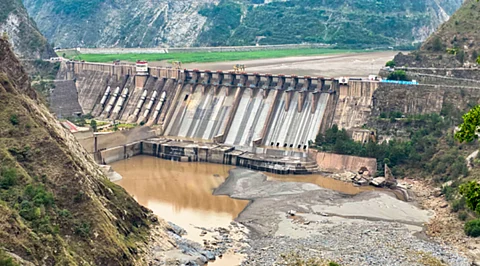

– India has yet to respond to Pakistan’s repeated appeals to reinstate the Indus Waters Treaty, suspended in the aftermath of the April 22 Pahalgam terror attack that killed 26 civilians. The move was part of a broader set of punitive measures announced by New Delhi in response to Islamabad’s continued support for cross-border terrorism.
According to sources familiar with the matter, Pakistan’s water resources secretary Syed Ali Murtaza has sent four official letters to India’s Jal Shakti ministry since April, urging a review of the decision. At least three of the letters were dispatched after India’s successful counter-terror operation dubbed Operation Sindoor.
India had formally notified Pakistan on April 24 about the suspension of the six-decade-old treaty. In a sharply worded letter, Indian water resources secretary Debashree Mukherjee stated, “The obligation to honour a treaty in good faith is fundamental. However, what we have seen instead is sustained cross-border terrorism.”
India’s Position: No Talks Without End to Terrorism
Despite the outreach from Islamabad, India has remained resolute. “There will be no engagement with Pakistan until it credibly and irrevocably abjures cross-border terrorism,” external affairs ministry spokesperson Randhir Jaiswal reiterated on April 29.
Since the suspension, India has halted the sharing of hydrological data related to the Indus, Jhelum, and Chenab rivers—all part of the western river system allocated to Pakistan under the 1960 agreement. The treaty, which favors Pakistan with an 80:20 water-sharing ratio, is vital to its agriculture and economy—accounting for nearly a quarter of the nation’s GDP.
Pakistan Calls Suspension a Treaty Violation
Pakistan maintains that the treaty cannot be unilaterally suspended and has accused India of violating international agreements. Pakistani leaders have even warned that any reduction in water flow under the treaty terms would be seen as an “act of war.”
Despite this, India insists its decision is grounded in national security. Former water resources secretary Shashi Shekhar revealed that he had proposed suspending the treaty as early as 2016, and that Prime Minister Narendra Modi had emphasized that “water and blood cannot flow together.”
A Historic First
This is the first time the Indus Waters Treaty has been put on hold since its inception in 1960, despite surviving four wars between the two nations. Indian officials also argue that changing climatic conditions and population growth have further diluted India’s share, warranting a fresh look at the treaty framework.
As tensions remain high, experts warn that a prolonged standoff could trigger water insecurity in Pakistan, with potentially serious implications for regional stability.
(This story is published from a syndicated feed)